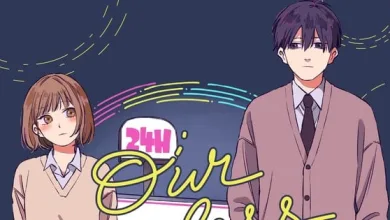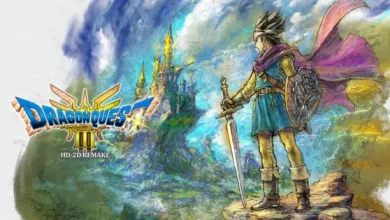Is It Wrong to Try to Pick Up Girls in a Dungeon? Novel 19 Review – Review

It’s never easy to come down from an epic on the scale of the last couple of arcs of Is It Wrong to Try to Pick Up Girls in a Dungeon?. Between Bell and Lyu’s near-disaster in the Dungeon, Freya’s abduction of Bell, and the war game between Hestia and Freya Familias, it’s almost inevitable that the arc that tries to calm things back down would feel a little underwhelming. Series author Fujino Ōmori attempts to shift gears by changing up the genre a bit. While that’s not a bad or uninteresting change, it’s not nearly as engaging as the previous high-octane series entries.
This nineteenth volume opens with the aftermath of the Hestia/Freya war. As you’ll recall, Freya was allowed to stay in Orario as Syr, which feels like the best possible outcome for her. (Whether or not she deserves that is up to your interpretation of past events.) Although officially disbanded, Freya Familia is still largely intact, although they no longer have their home base or a goddess to follow. The line around town is that they’re available for conversion to another familia but everyone knows that will never happen. Instead, Mama Mia at the Benevolent Mistress has taken on a de facto leadership role, and the entire familia answers to Hestia, albeit from the shadows. Bell seems a touch conflicted about all of this, and it’s unclear whether that’s because of his innate goodness or if he’s psychologically damaged from his forced time with them and feeling the lingering effects of it.
Omori doesn’t linger on this question, though. Instead, the goal is to move into a new arc largely divorced from the previous ones, although Lyu’s actions and emotions carry over during her brief appearances in the novel. While Bell is discussing his plans with Eina, something he’s never experienced happens: the so-called School District makes port. Rather than being an official part of Orario, the School District is a floating academic city that makes the rounds of the world, completing a tour roughly every three years, like the ultimate semester at sea program. Students can enroll or disembark at each port of call to do internships, practicals, or leave to pursue a career. Familia members generally don’t (or possibly can’t) become full-time students, and familias are forbidden from boarding the vessel for recruitment purposes – thanks, apparently, to Hermes.
Naturally, things can’t go smoothly, and Bell falls prey to another one of Hermes’ plots, temporarily enrolling in the School District with permission from Baldr, the god who functions as the headmaster. (The ship is his vessel from Norse mythology: Hringhorni and the Babel-like tower at its center is named after the god’s home, Breiðablik.) Baldr’s two stipulations are that Bell hides his identity and that he works with the most dysfunctional team in Baldr’s Class (“class” is the school equivalent of “familia”) during their Dungeon practical. The bulk of the novel is devoted to this, with cameos from Hestia Familia every now and then.
The main issue with this plotline is that it simply isn’t all that exciting. The new characters are interesting enough, particularly Nina Tulle but we don’t get a good sense of how the School District functions beyond a few glimpses of how it’s more technologically advanced than Orario (and the rest of the world), but is not good at understanding the real-world applications of its advances. Adventurers do not view students favorably, which is an interesting dynamic; the adventurers seem to feel that the students are snooty elites and are putting themselves above people who just got into a career without an academic background. On the other hand, students appear to hold adventurers in high regard, creating a dynamic I would have liked to see more of.
We will have the chance to do so because Omori mentions at least one more book in the arc. That could mean that this is largely set up, and the meat of the story is still ahead. And despite the lack of excitement, this novel still has interesting elements. More than almost any other entries into the series, this is told in Bell’s first-person narration. We get a few (very significant) sections in the third person. Still, this volume is primarily Bell’s story, and his main “job” is to understand Lilly’s role in Hestia Familia more. Bell ends up disguised as a hume bunnyperson when he’s with the school group, playing the supporter role in his party. To do this well, he needs to really think about how Lilly does her job, empathize with how she must feel at times, and use her as his role model. Bell has never not appreciated Lilly, but this gives him a much better sense of how hard she works beyond just managing Familia’s finances. Yes, Bell’s group survives because he’s a secret level-five adventurer. Still, they succeed before that because he can tap into his inner Lilly, underlining just how vital she is. We may not get many scenes with Lilly, but her mark is all over this book.
Also brewing in the background is what the return of the School District means for the Guild. Yes, it’s a recruiting opportunity, but the District also produces orichalcum, and Royman, looking increasingly mercenary with every volume, has plans for that precious metal. This seems to be something that’s been building for a while since the discovery of Knossos, and Royman now wants to tamper even further with the Dungeon in a very physical sense – how it’s phrased makes it sound like an almost sexual assault on the Dungeon. Royman is so enamored of his plans that he won’t listen to anyone who tries to point out the problems, and that feels like setting the stage for the next arc or possibly the series’ endgame.
Is It Wrong to Try to Pick Up Girls in a Dungeon?‘s nineteenth novel isn’t quite as good as the previous few. It isn’t bad, but it also feels like a step back while also giving the sense that Omori is pandering a bit, either to himself or his audience, with Nina and Lyu’s feelings for Bell. It’s also not as overwritten in the fight scenes and is setting up an interesting showdown with the physical Dungeon its (her?) self, and Bell’s insight into Lilly’s work is very worthwhile. That makes this a very middle-of-the-road volume: it’s still good, but it’s also easy to feel that it could have been better.
Source link
#Wrong #Pick #Girls #Dungeon #Review #Review


